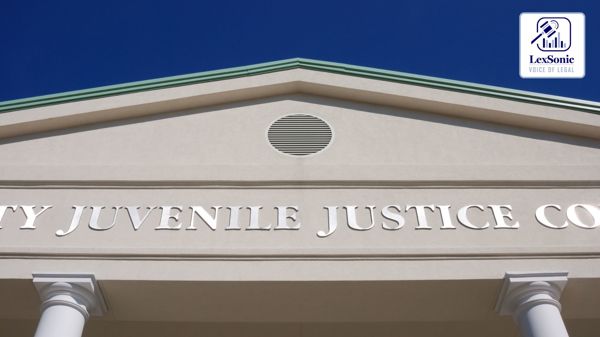Supreme Court Overturns Convictions Citing Procedural Lapses and Juvenility.
20 May 2025
Cheating and dishonestly inducing delivery of property >> Criminal Law | Corruption >> Criminal Law | Forgery >> Criminal Law
In a recent decision on May 20, 2025, the Supreme Court of India allowed Criminal Appeal No. 490 of 2025, overturning the convictions of Ramji Prasad Jaiswal alias Ramjee Prasad Jaiswal, Ashok Kumar Jaiswal, and Bal Mukund Jaiswal. The judgment, delivered by Honourable Mr. Justice Abhay S. Oka and Honourable Mr. Justice Ujjal Bhuyan, addressed critical issues of procedural fairness under Section 313 of the Code of Criminal Procedure, 1973 (CrPC), and the determination of juvenility under the Juvenile Justice (Care and Protection of Children) Act, 2000 (JJ Act).
The case originated from a 1983 CBI special case (Special Case No. 52/1983) where the appellants were accused of offenses under Sections 420, 468, 471, and 120B of the Indian Penal Code, 1860 (IPC), read with Section 5(2) and 5(1)(d) of the Prevention of Corruption Act, 1947. The allegations pertained to a period between September and December 1982, involving fraudulent transactions with the State Bank of India using fake transport receipts, resulting in a loss of Rs. 13,29,266.00 to the bank.

Background of the Case:
The appellants were convicted by the CBI Court on May 29, 2006, and sentenced to rigorous imprisonment for various terms, including three years under Section 420 IPC and Section 468 IPC, with fines, and concurrent sentences for other charges. Their appeal was dismissed by the Patna High Court on November 24, 2011. The Supreme Court granted leave in the special leave petition filed by the appellants.
Key Issues Before the Supreme Court:
The Supreme Court primarily considered two major contentions raised by the appellants:
- The failure of the trial court to properly record statements under Section 313 CrPC, leading to prejudice.
- The juvenility of appellant No. 3, Bal Mukund Jaiswal, at the time of the offense.
Procedural Irregularity: Section 313 CrPC
The Court noted that the trial court recorded the statements of the appellants under Section 313 CrPC in a "mechanical manner," posing only four general questions that did not reflect the specific incriminating evidence against them. This amounted to a clear breach of Section 313 CrPC and the principle of audi alteram partem (hear the other side), causing "serious prejudice" to the appellants.
Citing precedents like Shivaji Sahabrao Bobade Vs. State of Maharashtra and Raj Kumar alias Suman Vs. State (NCT of Delhi) , the Court reiterated that material circumstances appearing in evidence must be put to the accused specifically, distinctively, and separately. Failure to do so is a serious irregularity that can vitiate the trial if prejudice is shown.
Given that over four decades had passed since the alleged offense (September-December 1982) , the Supreme Court determined that remanding the case for a fresh trial would lead to a "miscarriage of justice" rather than aiding it. Consequently, the Court granted the benefit of doubt to appellants Ramji Prasad Jaiswal and Ashok Kumar Jaiswal, setting aside their conviction and sentence.
Determination of Juvenility:
Appellant No. 3, Bal Mukund Jaiswal, claimed he was a juvenile at the time of the offense, based on his matriculation certificate showing his date of birth as December 24, 1965. This meant he was approximately 17 years old when the offense was committed in December 1982. The CBI's preliminary inquiry found this certificate to be genuine.
The Supreme Court had previously directed the Special Judge to conduct an inquiry under Section 7A of the JJ Act, 2000. The Special Judge's report, dated November 28, 2013, confirmed Bal Mukund Jaiswal's date of birth as December 24, 1965, based on school records and CBI confirmation, declaring him a juvenile on the date of the offense.
The Court acknowledged that ordinarily, a juvenile should be dealt with by the Juvenile Justice Board for inquiry and appropriate orders, including placement in a special home for up to three years. However, considering the passage of over four decades since the offense, the Supreme Court deemed it "neither possible nor feasible" to remand the case to the Juvenile Justice Board. Therefore, the conviction and sentence against Bal Mukund Jaiswal were set aside solely on the ground of his proven juvenility.
Conclusion:
The Supreme Court allowed the criminal appeal, setting aside the convictions and sentences of all three appellants. The bail bonds of the appellants were cancelled. This judgment underscores the paramount importance of strict adherence to procedural safeguards, particularly Section 313 CrPC, and reiterates the protective provisions for juveniles under the JJ Act, even when significant time has elapsed since the alleged offense.
Section 313., Code of Criminal Procedure - 1973
Code of Criminal Procedure, 1973
Prevention of Corruption Act, 1988
Section 120B., Indian Penal Code - 1860
Section 420., Indian Penal Code - 1860
Section 468., Indian Penal Code - 1860
